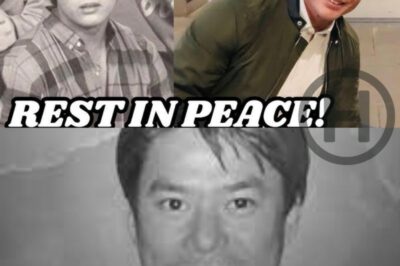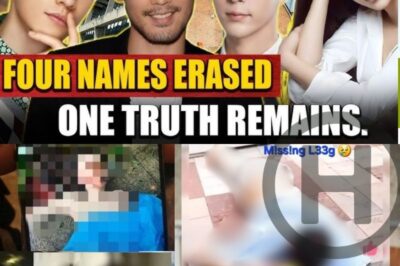Who Is Sarah Discaya? Understanding Her Background and the Controversies She Faces in Her Mayoral Bid
Introduction
As the 2025 local elections approach in the Philippines, one name has generated significant attention in Pasig City: Sarah Discaya. A businesswoman-turned-political-hopeful, she is running for mayor with a promise of transformation, modernization, and compassion. Her rapid rise, however, has not come without scrutiny. From questions about her citizenship to allegations tied to her businesses, Discaya’s candidacy has been met with both strong support and equally strong skepticism.
This article takes a detailed and balanced look at who Sarah Discaya is, what she stands for, and the controversies surrounding her name.
1. Her Background and Rise to Public Attention
Sarah Discaya, whose full name is Cezarah Rowena Cruz Discaya, is a dual citizen born in London to Filipino parents. Her early life was marked by humble beginnings — her mother worked as a chambermaid, and her father as a waiter. These formative experiences have often been cited by her as motivations for her philanthropic work.
After returning to the Philippines, she pursued education in business administration and later entered the construction industry. Over time, she rose through the ranks to become the CEO of St. Gerrard Construction and Development Corporation, a company that has since expanded into a conglomerate involved in infrastructure, development, and services.
Outside of business, Discaya has also led charitable efforts under her foundation. These include free medical missions, pandemic-related relief operations, and assistance during typhoons and floods. Her supporters highlight these initiatives as proof of her commitment to public service, even before entering politics.
2. Her Political Platform and Campaign Promises
Discaya is running for mayor under a platform centered on the vision of a “smart city.” Her proposals include:
Digitizing government transactions
Implementing solar-powered streetlights
Building more barangay health centers and specialty clinics
Improving flood control infrastructure
Offering scholarship and housing programs for underprivileged sectors
She positions herself as a “public servant with a heart,” frequently emphasizing inclusive leadership and community outreach.
Despite being a first-time candidate with no prior government position, Discaya projects herself as a capable and decisive leader who can deliver results due to her private sector experience.
3. The Controversies: Legal and Ethical Challenges
a) Allegations Regarding Citizenship and Use of Foreign Passport
One of the most prominent issues tied to Discaya is the accusation that she may not be legally eligible to run for public office. Reports emerged suggesting that she used a British passport earlier in the year, after she had already filed her candidacy.
This raised concerns from rival camps, who argued that such an act could imply allegiance to another state — a potential violation under the rules governing qualifications for public office in the Philippines.
However, her legal team maintains that Discaya is a natural-born Filipino citizen and also a British citizen by birth. According to their interpretation of existing laws, she does not need to renounce her British citizenship to run for office, as long as she holds Filipino citizenship and has established residency in the country.
So far, no disqualification has been officially upheld against her, but the debate remains a heated issue in the election discourse.
b) Scrutiny of Her Business Interests
Discaya’s construction firm, St. Gerrard Construction, has also come under fire. Critics, including incumbent officials, have questioned the company’s involvement in several government-linked infrastructure projects. Allegations have been raised concerning:
The use of questionable subcontractors
Contract anomalies and irregular bidding
Substandard project outputs
Possible links to other companies under the same business address
One particular area of concern involves a construction firm allegedly connected to Discaya’s camp that was involved in financing or supplying election-related materials. Some opponents claim this may represent a conflict of interest or unfair political advantage.
Discaya has not been convicted or formally charged with any crime, and her side maintains that her businesses operate legally and transparently.
c) Charity Event and Permit Dispute
Discaya’s foundation held a large-scale charity concert as part of its outreach initiatives. However, controversy followed when allegations surfaced that the event lacked the necessary city permits. Local officials criticized the move, raising questions about her campaign’s adherence to regulations.
Her team responded by stating that the event was held on private property and followed applicable guidelines. They also emphasized that the foundation had been conducting similar events for years without issue.
d) Misuse of Campaign Messaging
Another viral controversy involved a statement that appeared in Discaya-aligned online content, which read “babawiin namin” (translated: “we will recover what we spent”). The phrase was widely criticized by the public for implying a transactional approach to public service.
Discaya later disowned the statement, clarifying that she does not support that kind of mentality and that the phrase was not authored or approved by her campaign. She said that generosity should not come with conditions, and that genuine service means not expecting anything in return.
Despite her clarification, the incident was widely circulated and became a point of concern for many voters.
4. Public Reception and Online Sentiment
Online discussions about Sarah Discaya have been sharply divided. Supporters admire her business acumen, charitable track record, and bold campaign proposals. They often view her as a fresh, competent alternative to established politicians, someone who has “walked the talk” through community work.
Critics, however, are skeptical. Some accuse her of being backed by powerful political families. Others raise doubts about her sudden rise in visibility, with some speculating that her social media and publicity push may be artificially amplified. These concerns have led to debates about media fairness, funding sources, and influence.
Despite the division, it is clear that Discaya has managed to spark national attention — a feat rarely achieved by first-time candidates.
5. Moving Forward: What’s Next for Sarah Discaya?
As the campaign season continues, Discaya finds herself navigating between solidifying her political legitimacy and defending her reputation. Whether she wins or loses, her name has become part of the broader conversation about new entrants in Philippine politics, business leaders crossing into governance, and the growing role of image-building in electoral success.
The outcome of her candidacy may depend not only on her policy proposals but also on how voters interpret the legal, ethical, and personal questions that continue to follow her.
Conclusion
Sarah Discaya is a complex figure: a business leader, a philanthropist, and now a political aspirant. Her story reflects both the promise and peril of outsider politics. Her rise demonstrates how civic work and personal ambition can intersect in the public sphere. At the same time, the controversies she faces—ranging from citizenship legality to business ethics—remind us that political legitimacy requires more than good intentions.
As voters examine her record and reputation, the ultimate question becomes not just about her plans for Pasig, but about trust: Can she deliver, and is she the leader Pasigueños are ready to embrace?
Related Articles for Further Reading
A Closer Look at Sarah Discaya’s Vision for Pasig
Dual Citizenship and Political Eligibility in the Philippines
Business Leaders Entering Politics: Trends and Risks
How Charity Work Shapes Political Perception
The Role of Social Media in Modern Campaign Narratives
News
Vice Ganda Isiniwalat ang Pakikitulong sa Paaralan ni Heart! Sinabing Corrupt si Chiz Escudero? (NH)
🔥 Vice Ganda Isiniwalat ang Pakikitulong sa Paaralan ni Heart! Sinabing Corrupt si Chiz Escudero? 🔴 Published on October 28,…
OMG! Lalaki na Huling Nakasama ni Emman Atienza Bago Ito Binawian ng Buh@y May Binulgar 😱 (NH)
OMG! Lalaki na Huling Nakasama ni Emman Atienza Bago Ito Binawian ng Buh@y May Binulgar 😱 Published on October 28,…
Last Will ni Emman Atienza: Milyon-Milyong Pera at Alahas, Idodonate Para sa Mga May Mental Illness (NH)
🔥 Last Will ni Emman Atienza: Milyon-Milyong Pera at Alahas, Idodonate Para sa Mga May Mental Illness Published on…
The $200 Million Contract Yu Menglong Could Never Escape (NH)
The $200 Million Contract Yu Menglong Could Never Escape Published on October 28, 2025 Introduction Yu Menglong, once celebrated…
Patrick Dela Rosa Pumanaw sa Edad na 64: Alamin ang Dahilan ng Pagkamatay (NH)
Patrick Dela Rosa Pumanaw sa Edad na 64: Alamin ang Dahilan ng Pagkamatay Published on October 28, 2025 Introduction…
Four Stars. Four D34ths. One Silence: China’s Brightest Lives Cut Short (nh)
Four Stars. Four D34ths. One Silence: China’s Brightest Lives Cut Short Published on October 28, 2025 Introduction In the past…
End of content
No more pages to load












